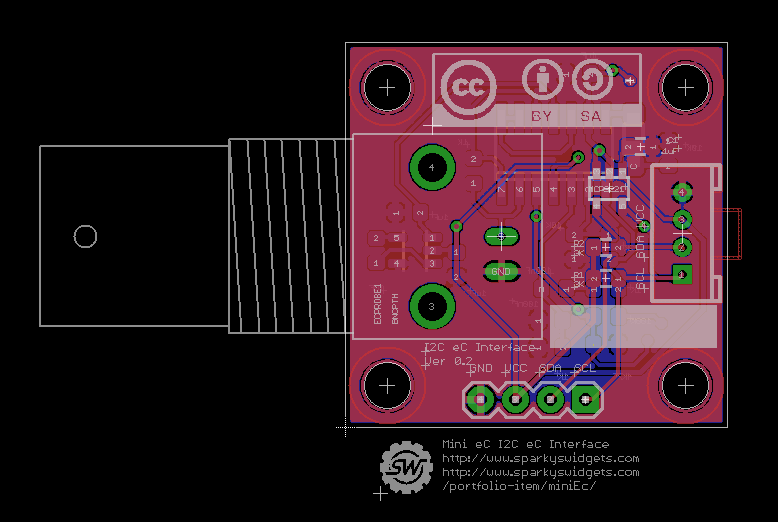[Ryan] designed a PCB that lets you easily take readings from a commercial electrical conductivity probe over I2C. Conductivity measurements are great for measuring the salinity of a solution, which is useful for applications like hydroponics. While the probes themselves are a bit pricey (on the order of $50 from eBay), they are very accurate and last a long time.
Commercial conductivity probes contain platinum electrodes to prevent corrosion. The electrodes are excited with an AC signal, which prevents polarization of the solution and avoids chemical reactions at the electrodes. The voltage across the two electrodes is measured while the electrodes are being excited, which is proportional to the conductivity of the solution
[Ryan]’s board generates +/-5v and uses a Wien bridge oscillator to generate a sine wave which excites the outermost electrodes. The voltage across the electrodes is amplified and fed into a MCP3221, an inexpensive 12-bit ADC with an I2C interface. [Ryan] also wrote an Arduino library for the MCP3221 so you can easily get your probe up and running.
















it’s WIEN-bridge, not WEIN :D
Good catch! Fixed.
This post could not have come up at a better time, been looking for a good DIY EC meter circuit.
sorry for holding your up on the milling machine! How did it turn out?